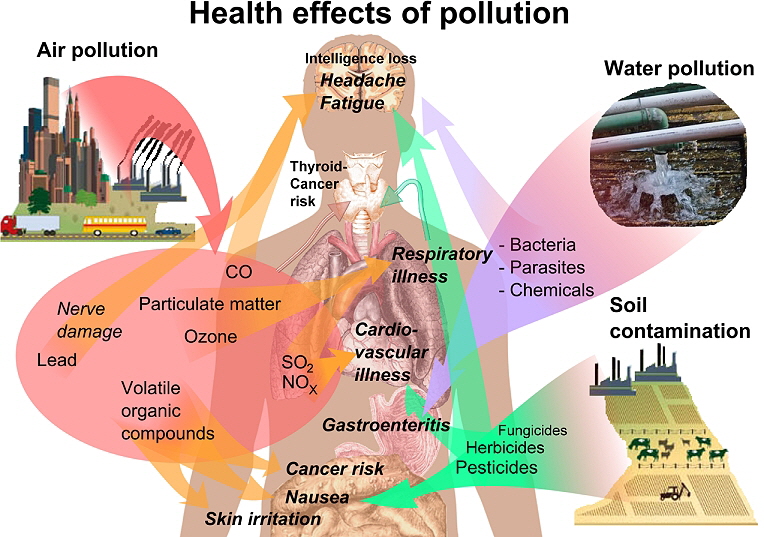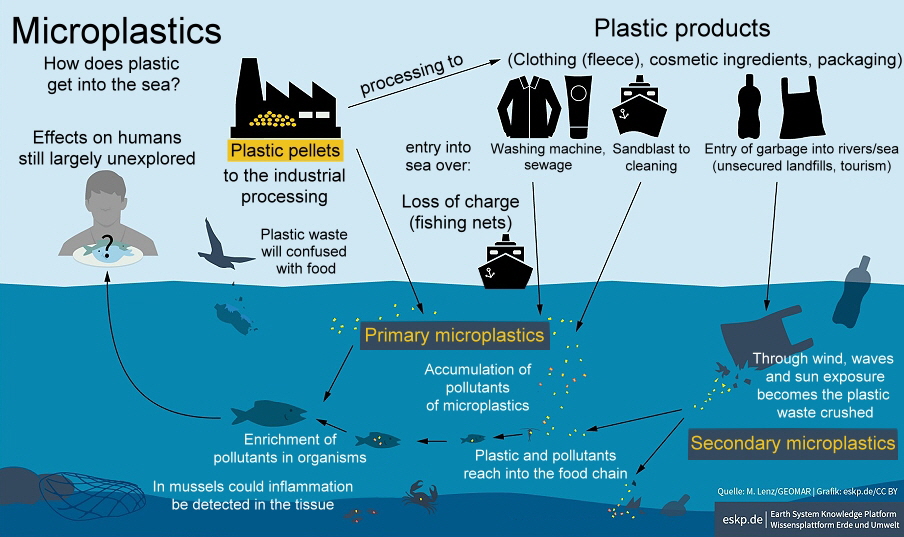


Home Energy Water Work Economy Solution Politics Team Product Recycling Cars Ships Aircrafts Promotion
World Pollution Air Weather Violence Women Weapons Psychology Plants Animals Food Peace Faith Imprint
Pollution
Pollution...where to start
What moves people so much at the moment is above all the visible environmental pollution, mountains of rubbish in China, Africa, India ... no rubbish from there, it mainly comes from Europe. The plastic swirls in the oceans, plastic on the shores, plastic everywhere. Herbicides, fungicides and insecticides, plastic softeners, heavy metals in drinking water, poison us bit by bit. The car manufacturers are in the headlines, particulate matter and CO² are on everyone's lips. Burning coal to generate electricity also shares this bad reputation. Soil in agriculture is contaminated, including groundwater, fertilizers, pesticides, herbicides, fungicides, but also heavy metals are stored in the soil and recently it has been found that there are also nanoplastics, nano tire debris, in the soil, water and food. Heavy metals are increasingly found in drinking water in some regions. Toxins are measured in vegetables, including at so-called organic markets. In people's urine, the plasticizers from the plastic are pointed out, we don't even know what this stuff does in a human's body. Of course, aside from the fear created by the warming of the atmosphere, there are direct consequences that are demonstrable, or at least demonstrable in animals. Recent studies have shown that allergies are increasing, the body's defenses are declining and people's intelligence is declining.
Still, there are leaders who think this is all a bad publicity campaign, or at least that's what they say.
But it's not just the pollution that ends up in our food and affects us directly.
Micro and Nanoplastics enter the body through the food chain, all sorts of toxins are in the urine, we already know that. But it's also what manufacturers stuff us into our foods and drinks, too much fat, sugar and salt, then flavor enhancers, colors, thickeners and preservatives. We are the garbage can of the food industry.


UN agreement against plastic waste fails
An agreement on a global agreement against plastic waste has failed. After three years of negotiations, around 180 countries were unable to agree on a treaty text in the final week in Geneva. This is especially true for countries that sell the raw material oil for plastic. Among them are Saudi Arabia, Iran, and Russia, who refuse to stop poisoning humans and animals. The usual suspects didn't even want to agree to a ban on single-use plastics.
Talks already failed in Busan, South Korea, last December 2024. Negotiators had hoped for a breakthrough at the ten-day conference in Geneva, which was supposed to be the final round of negotiations for a plastics agreement.
Plastic waste not only causes massive environmental pollution worldwide. Microparticles of plastic waste also occur in the human body. We eat and drink microplastics. It is present in water, in all animals, and has even been detected in plants. The current reports about microplastics in breast milk and the placenta are particularly alarming: If the unborn child is already exposed to the flood of plastic in the womb, how can a healthy life be possible? Agricultural products are now contaminated with plastic nanoparticles that cross the blood-brain barrier and even enter the bloodstream of embryos via the placenta. The toxic substances in plastic can trigger cancer, infertility, autism, or allergies. Bisphenol A, in particular, is a very dangerous ingredient. Bisphenol A makes plastic cheaper but looks very similar to a human hormone. This is insidious because it prevents the body from recognizing that it is a foreign substance. The more we consume, the more toxins are stored in the body. The substances in the plastic can then, in turn, trigger cancer, infertility, autism, or allergies.
For me, the production of plastics used to store liquids and food, or to consume food or drinks, is clearly intentional bodily harm, especially since it is known that these plastics end up in the environment, decompose there, and enter our food chain as micro- and nanoplastics, even reaching unborn life. We must now consider who will pay for future harm to the generations resulting from this poisoning.
Currently, more than 400 million tons of plastic are produced annually, half of which is for single-use products. Less than 10 percent of plastic waste is recycled. By 2060, plastic production could triple. At first glance, this seems like a good deal, but given the expected subsequent costs for health care and cleaning the planet, it is actually a gigantic loss-making venture.
The question is not how long we can continue to do this; the question is how long we can endure it.
This is what happens when we put our lives in the hands of profit maximization.
We must realize that environmental or health protection cannot be achieved under the imperative of profit maximization to cover interest and capital returns. A reusable bottle system cannot be implemented, and genuine recycling can and will never take place unless the taxpayer takes care of it. Then a liter of a sweet drink will no longer cost $2, but $200, which is the true price for this and other beverages: "You can't beat the feeling." A free market economy is characterized by increasingly poor services and goods at ever-increasing prices. Unfortunately, as we now know for sure, with littering, poisoning of soil, humans and animals, mass tree deaths, mass animal deaths, over exploitation of nature, a global warming that only occurred during the Paleocene/Eocene Thermal Maximum (PETM) about 55.8 million years ago, droughts, fires, storms, floods, ever-increasing poverty, rents, supermarket prices, extreme refugee flows, increasing violence, rising right-wing radical parties and groups and death zones in the sea and also on land - this is the true future that awaits us.
Home Energy Water Work Economy Solution Politics Team Product Recycling Cars Ships Aircrafts Promotion
World Pollution Air Weather Violence Women Weapons Psychology Plants Animals Food Peace Faith Imprint